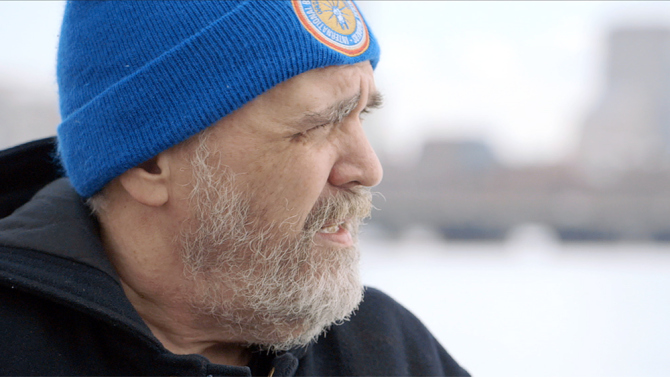By Gregory Crofton
Barry Crimmins might be one of worst stages name ever, probably bad enough that it hurt his comedy career. But the man behind it, I suspect, wouldn’t see his name on a marquee another way.
Crimmins stands for the truth, going through it and not around it, especially when it comes to promoting standup comedy (he started a comedy club in Boston), skewering American foreign policy, and divulging his personal history.
I’d never heard of Crimmins until I saw “Call Me Lucky,” a documentary about his life at the Chattanooga Film Festival last weekend. It won the audience award for best film. I gave it a five out of five on my ratings card because it’s as funny as it is inspiring.
“Call Me Lucky” is the first documentary made by Bobcat Goldthwait, a comedian and friend of Crimmins. Goldthwait is best known for his standup in the 80s and his role in the film “Police Academy.” Since then he’s directed episodes of Chapelle Show, Jimmy Kimmel Live!, “Maron” and several feature films. He knows how to make funny scenes work on screen.
And “Call Me Lucky” is really funny, especially the first half of it. There are testimonials from Steven Wright, David Cross, and Patton Oswalt. You’ll think of Bill Hicks and his biting political satire. Crimmins is so good, did he ever get together with Hicks? Did they influence each other? I was also left with other questions — like did he date? Did he make a decent living as a comedian?
Instead the story turns sharply from reminiscing about the old party days in Boston with comedians — like Lenny Clarke — to one of personal transformation.
Crimmins announced on stage one night, after years of concealing the abuse, that he was raped as a 4-year-old boy by a man who was a friend of his teenaged babysitter. It’s gloomy subject, but Crimmins, today 61, has a way of working through things.
He decided to investigate pedophiles who traded illegal images in the early days of AOL chatrooms. He took the fight all the way to Congress and won. He became a humanitarian, and, among other things, traveled to Texas to support and defend Cindy Sheehan, a mother who spoke out against the war in Iraq after she lost her son there.
Despite a challenging storyline, Goldthwait is able to keep up the momentum of the film, lightening the load at the just the right times with music, idyllic nature shots, and animated sequences that are hilarious. “It’s really heavy … really heavy,” said Goldthwait during a question-and-answer session after the film, describing what it felt like to make a documentary versus a feature film.
At first he planned to make Crimmins’ story a feature film, but he couldn’t raise the money. Actor and comedian Robin Williams, Goldthwait’s best friend, provided funds to get the documentary started. That was in February 2014. So not only did Goldthwait finish the film within the year (it premiered in January at Sundance), he did it after Williams’ sudden suicide.
Goldthwait apologized for being a little shaky before the start of the Q&A in Chattanooga. “That was kind of hard for me to watch,” he told the audience, as the very end of the film still rolled on the screen and the words “For Robin” appeared. “Kind of emotional. It’s been a bumpy year for me. Kind of hit me harder than usual.”
All the work he did for his friend Robin Williams and for his other friend Barry Crimmins paid off. “Call Me Lucky” is powerful cinema that widens your view of the world and helps you get there with laughter and testimony from people who stood up and did some important truth telling.



